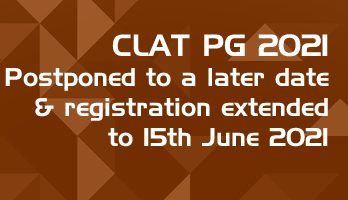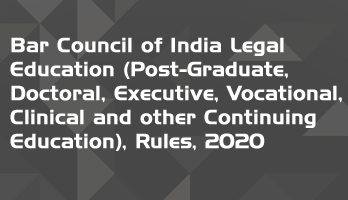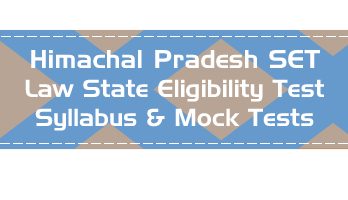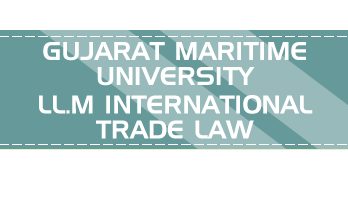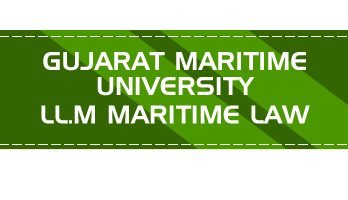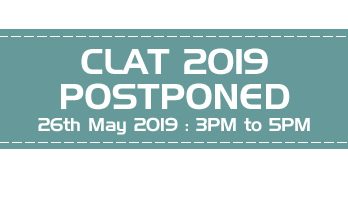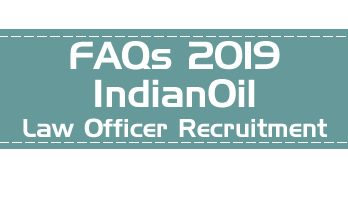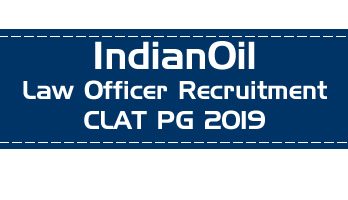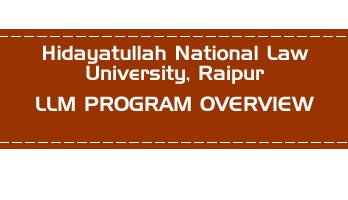Q : What is it like when an Indian meets a Pakistani at the people-to-people level?
Ans :
Long long ago . . .
Way back in 2004, I traveled to Newcastle, UK for some training and was scheduled to be there for a few months.
I was staying alone in a serviced apartment in the Baltic Quay area.
A few days into my trip, I developed a fever. I just took some paracetamol and thought it would go away. But it only got worse. Soon I had rashes all over my body; which were itchy like hell.
I never had chicken pox as a kid and wasn’t vaccinated either – hence no immunity. I must have caught the virus from a kid sitting next to me on the plane to UK.
Though I had a car, I wasn’t in a position to drive and even if I could, I didn’t know where the hospitals were (Those were the days when GPS was not as ubiquitous) and what was the procedure to see a Doctor in the UK.
I called for a taxi and a Pakistani guy turned up. He took me to a hospital and though he could have collected the fare and gone his way, he insisted on accompanying me into the hospital, filled in the forms for me and waited for almost an hour till the Doctor saw me.
The Doc prescribed some medicines and advised bed rest for a couple of days.
The taxi guy then drove me to a pharmacy to pick up the medicines and dropped me back home. Asked me what was I going to do for food. He then went to some nearby restaurant and got me some Indian food; and some flyers with numbers of restaurants which would deliver to my apartment.
He gave me his number, to call if I needed any help; and then he left.
He had only taken the money for the initial home to hospital trip, which had been booked through the taxi company. He refused to take any money for the better part of the day he had waited at the hospital, dropping me home and buying food for me.
Since we had spoken while en-route to the hospital, he knew I was an Indian and he had introduced himself as a Pakistani.
What he did was purely out of courtesy, kindness and humanity.
I again met him a few days before I was scheduled to fly back to India and we shared a meal at some Indian restaurant.
After all these years, I don’t remember his name or his face; but I will never forget the kind gesture.
Q : What is the procedure to start practicing law after completing an LL. B. degree?
Ans :
IMHO, Get some experience . . .
The first step after LLB is to register with your State Bar Council (SBC) as a Practicing Advocate; and you have to clear the AIBE – All India Bar Exam within two years of registering with your SBC.
However, I would say that practicing law in India is 34% procedure, 33% people skills & networking and 33% law.
While the ‘Law’ part is something that you will be able to learn from the books, the ‘People’ and ‘Procedure’ parts are things that you have to learn from personal experience.
So, if you intend to practice; I would suggest finding a decent practicing Advocate who is willing to take you as an apprentice.
Learn the procedures, observe & develop the people skills, get used to going through the grind of reading and drafting voluminous documents and build your contacts & credibility.
When you are confident and ready, take your mentor’s blessings and start off on your own. (Around 1.5 to 2 years of apprenticeship should be good.)
Since Lawyers are not allowed to advertise, reputation becomes one of the primary drivers for getting new clients; which means that the old clients will be your goodwill ambassadors & marketers. So, your initial set of clients will lay a strong foundation for your practice.
Q : Why should one sit for the All India bar exam?
Ans :
To practice as an independent lawyer . . .
After completing LLB, a student has to register with the respective state Bar Council and pass the AIBE – All India Bar Exam within two years.
There is a ‘grace period’ of two years from the date of enrollment with the Bar Council, during which a LLB graduate can practice as a Advocate (i.e. represent clients in a Court of law)
If the student is unable to clear the AIBE, he/she has to stop practicing as a lawyer (at the end of 2 years from State Bar council enrollment date) and can recommence practice only after clearing the AIBE.
However, there is no restriction on a LLB graduate for pursuing higher education (LLM / MBA etc.) or taking up employment on the basis of the LLB or even starting any other business.
In simple steps, if you wish to practice as a Advocate / Lawyer in India :
(1) Complete LLB
(2) Enroll with state Bar council
(3) Start practice as an Advocate
(4) Clear the All India Bar Exam – AIBE within two years of enrollment
(5) If unable to clear – stop practice as a Advocate – continue to attempt AIBE and clear it.
(6) Resume practice as a lawyer.
If you don’t intend to practice and you are involved in any other business or in full time employment, you can skip the AIBE.
But we strongly recommend all students to clear the AIBE at the earliest possible, since it is mandatory whenever you wish to practice; and it is simpler to clear the exam when you are still fresh with your LLB subjects.
Note: At this time, there is no restriction in terms of number of attempts or any age limit for taking up the AIBE.
Q : What is the best book for the CLAT PG LLM entrance exam?
Ans :
(This answer is repeated – edited from my answers to other similar questions)
The approach to the CLAT LLM paper is somewhat different from the approach to CLAT UG :
(1) It is completely an objective paper
(2) There are no ‘analytical’ / ‘quants’ / ‘reasoning’ based questions
(3) A bulk of the questions emphasize more on memory & recognition skills (e.g. Which article says this . . . Which case is for what . . . What Salmond / Austin / Hart or Holmes said etc.
(4) A significant number of questions (80% to 85%) are repeated / variations / adapted from previous exams or from other similar exams.
Extensive theory is not the best way to prepare for multiple choice based exams like the CLAT PG LLM.
What’s the approach?
The ideal approach would be to solve as many ‘relevant’ MCQs as possible, covering the entire syllabus, with focus on the critical areas and solve all the previous papers you can find.
Complete 2 (or preferably 3 or more) mock tests every day. Review the results carefully and make a note of the questions you got wrong and memorize the correct answers.
Repeat the process every day till you circle back to the first set of mock tests and just keep repeating the cycle.
In around 10 – 15 days, you will have become familiar with a bulk of the ‘important’ questions; and you will know the answer by instinct and your scores will start going up.
What do I mean by ‘relevant’ MCQs ?
The constitution of India has 448 articles; and there can be at least a 1000 MCQs about the Constitution. But that would be a sheer waste of time and effort for the students.
Careful analysis of past papers + papers from similar exams will show that 80% of the questions are about some 45 odd articles i.e. 10% of the constitution accounts for 80% of the questions. Another 10% are around some rarely asked articles, but should be covered.
The remaining 10% are ‘Googly’ questions – which are extremely rare.
So, by identifying the most important aspects of the syllabus, the Question bank can have a limited number of questions – but at least 90% of the questions will come from within the bank.
Emphasis on memory . . .
Most of the LLM entrance questions don’t need any explanation or reasoning .
For example, look at the first four questions from CLAT PG listed below.
Once you know & remember the correct answer, you can answer these questions & any variations thereof.
1. If any question arises whether a Bill is a Money Bill or not, the decision given by the shall be final:
(a) Finance Minister
(b) Speaker of the Lok Sabha
(c) Vice-President
(d) Prime Minister.
2. Part IX-B of the Constitution of India dealing with the ‘Co-operative Societies’ was inserted by:
(a) The Constitution (Ninety Fifth Amendment) Act, 2009
(b) The Constitution (Ninety Eighth Amendment) Act, 2012
(c) The Constitution (Ninety Third Amendment) Act, 2005
(d) The Constitution (Ninety Seventh Amendment) Act, 2011.
3. Article 280 of the Constitution of India deals with:
(a) Finance Commission
(b) Election Commission of India
(c) Union Public Service Commission
(d) Comptroller and Auditor-General.
4. Which provision of the Constitution of India deals with the representation of the Anglo-Indian Community in the House of the People?
(a) Article 331
(b) Article 332
(c) Article 333
(d) Article 330.
Are you buying the right material ?
If you are buying printed books, do check and reconfirm if you are buying CLAT books or CLAT PG books.
Some of the links suggested on a website seem to be the CLAT (LLB) entrance books. (Some students order the CLAT books assuming that the PG question papers are included.)
Q : After graduation, how much time will it take for an LLB?
Ans :
3 years . . .
The LLB degree in India can be considered a ‘Higher Bachelor’s degree; i.e. you have to be a graduate before taking up the LLB course.
After graduation (in any stream), with a minimum of 45% marks, you can take up a 3 year LLB in a regular UGC – BCI recognized college.
If you are keen on completing your LLB in a Tier 1 / Tier 2 college, you can even take up a 5 year LLB through various entrance exams like the CLAT / AILET / HPNLET / DU LLB etc. (Though you will be spending two additional years, a Tier-1 college will help you pursue a corporate career.)
As of today (Aug 7th ), there is no upper age limit for taking up LLB.
There are no distance / part-time LLB courses that are recognized by the BCI; so if you take up such courses, you will not be eligible to practice.
Q : Is an LLB passout student eligible for the UGC NET?
Ans :
Yes, but . . .
Technically, if you have cleared your LLB, you are eligible to take up the UGC NET Law exam for JRF / Asst Professor; but you should have enrolled in a LLM program.
After clearing the NET, to be declared as UGC NET qualified, you are required to clear your LLM degree within 2 years of the UGC results being announced.
To ensure that the two year deadline is met; you should have already enrolled in a 2 year LLM. Because, it is not just the 2 years of the LLM program, but also the time taken to announce the results that should be factored in.
On the other hand, with one year LLM programs, you can actually take up and clear the LLM after completing the UGC NET and still submit your documents within the deadline to get the eligibility.
LLB is a ‘Higher bachelors degree’ . . .
LLB is a ‘Higher Bachelor degree’ of sorts. Which means that you should already be a Graduate before taking up 3 year LLB or take up the 5 year LLB after 10 + 2.
So, if a normal graduate (e.g. BA / BSc / BCom / BBA) can complete a master’s degree in 17 years, it will take a LLB degree holder 18 ~ 20 years to complete a Masters degree in Law.
i.e. :
BA + MA : 10 + 2 + 3 + 2 = 17 years
BA + LLB (3 year) + LLM (2 year) : 10 + 2 + 3 + 3 + 2 = 20 years
BA + LLB (3 year) + LLM (1 year) : 10 + 2 + 3 + 3 + 1 = 19 years
5 year LLB + 2 year LLM : 10 + 2 + 5 + 2 = 19 years
5 year LLB + 1 year LLM : 10 + 2 + 5 + 1 = 18 years
So, to compensate for the additional years spent in completing LLM, UGC NET provides a age limit relaxation of 3 years for LLM degree holders, for the JRF qualification. (There is anyways no age limit for anyone for Asst. Professor qualification.)
Q : How many marks do I need to get to pass this NET exam?
Ans :
In the UGC NET, you need to ‘Qualify’, not simply ‘Pass’ . . .
With the current rules, 6% of the eligible candidates in the UGC NET exam are declared as ‘Qualified’.
All candidates who appear for both the papers and score 40% (35% for reserved categories) or more in aggregate in both the papers are considered to be ‘eligible’ to be qualified.
So, your objective is not only to score the minimum required marks, it is more realistically to be in the top 6% of the candidates attempting the exam.
While there will be a trend in terms of the theoretical ‘cut-off’ marks, there are no actual cut-off marks for the UGC NET.
Q : How many marks do I have to take in the UGC NET exam to pass?
Ans :
You don’t pass the UGC NET, you need to ‘Qualify’ . . .
There are exams like the AIBE- All India Bar Exam, where your goal is to ‘Pass’. I.e. You need to score the minimum required marks.
Whether you clear the AIBE with 40% or with 100%, it doesn’t really matter.
But the UGC NET is a different story. With the current rules, 6% of the eligible candidates are declared as ‘Qualified’.
So, your objective is to be in the top 6% of the candidates attempting the exam.
While there will be a trend in terms of the theoretical ‘cut-off’ marks, there are no actual cut-off marks for the UGC NET.
All candidates who score 40% (35% for reserved categories) or more in aggregate in both the papers are considered to be ‘eligible’ to be qualified.
6% of the eligible candidates are declared as qualified.
Q : How do I become a high court lawyer directly after a 5-year integrated LLB?
Ans :
Actually . . .
You can start practicing as an Advocate in a High Court soon after you complete your LLB degree.
The first step is to register with your State Bar Council (SBC) as a Practicing Advocate; and you have to clear the AIBE – All India Bar Exam within two years of registering with your SBC.
However, I would say that practicing law in India is 34% procedure, 33% people skills and 33% law.
While the ‘Law’ part is something that you will be able to learn from the books, the ‘People’ and ‘Procedure’ parts are things that you have to learn from personal experience.
So, if you intend to practice; find a decent practicing Advocate who is willing to take you as an apprentice.
Learn the procedures, observe & develop the people skills, get used to going through the grind of reading and drafting voluminous documents and when you are confident and ready, take your mentor’s blessings and start off on your own.
What about the Supreme Court ?
Supreme court is not open to all Advocates. To practice in the Supreme Court. You have to :
- meet the eligibility criteria in terms of minimum number of years of practicing as an Advocate,
- train under a practicing ‘Advocate on Record’ (AOR) for one year,
- pass the ‘Advocate on Record’ exam that is held every year,
- have an office within the specified distance from the Supreme Court building
- have a registered Advocate’s clerk (who has cleared the prescribed exam)
- enroll with the Supreme Court as a AOR
High Court AOR ?
There were some news articles (circa 2015) that the Madras High Court was planning to have an ‘Advocate on Record’ process similar to the Supreme Court.
However, I am not aware of the current status of the initiative.
If the Madras HC comes up with such as process, then the other HCs also may initiate something on the same lines.
Q : Is doing a BA LLB in India boring and difficult?
Ans :
Nope.
I can answer about a 3 year LLB; but the answer should hold good for a 5 year LLB as well.
Any course of study can be boring if you have been pushed into it involuntarily; or you have no interest in the subject matter.
Personally, I can vouch that LLB is quite interesting, especially since there is a strong and visible correlation between what you are studying and what you can see in the world outside.
Be it Property Law, Personal Law, Intellectual Property Rights or Cyber Law; you will be able to connect what you are reading to cases and situations from real life.
Another good aspect is that the semester system makes sure that you hardly have a month or two as a breather before you are again planning and preparing (or just worrying) about the next exam 😉
The first couple of semesters can be somewhat tedious with the ‘lengthy’ subjects like Jurisprudence, CPC, IPC, CrPC etc. the subsequent semesters become a lot more interesting with the practicals, moot courts, assignments etc.
Having a good set of classmates also helps in keeping you on your toes and you get to learn a lot from them too.
And if you get bored, just see some good ‘Lawyer movies’ or ‘Legal TV series’ and you get pepped up with the thought that once you are done with your LLB, you can be a Lawyer too !
Thanks for the A2A.
Q : Is doing law from a private college good or not for those who were not selected in NLU?
Ans :
Depends on your career aspirations . . .
Whether you study at an NLU or in a regular University affiliated Law college, the degree you get is the same. You will get a BCI approved LLB.
In terms of quality of facilities, faculty, peer group and learning opportunities, very few private colleges can match the NLUs. So, if you make it to the NLUs, you will definitely enjoy the entire experience.
If you wish to pursue a corporate career, then an NLU is your best bet.
All NLUs have campus placement programs and the marquee law firms will recruit from there.
However, if your objective is to practice privately as an advocate after graduating, it doesn’t matter where you get your degree from.
To build your private practice, you will have to establish your credibility and network in the location + area of practice.
To summarize; If you intend to practice as an advocate, complete your LLB from any decent institute and spend time in understanding the local market, intern with a decent local Advocate and work towards establishing yourself.
If you wish to pursue a corporate career, focus on getting into an NLU; take a drop if you have to. (However, I would not recommend more than one drop.)
Q : I have done an LLB degree from a non bar council recognised university, is it possible for me to practice in India by doing an LLM here?
Ans :
No.
The prerequisite for practicing as an advocate in India is a BCI recognized LLB degree.
- If you have completed your ‘LLB’ a ‘Bachelors of Law’ from a distance learning / correspondence / private institution in India – which is not recognized by the BCI, you cannot practice. So an LLM doesn’t change your eligibility.You should consider taking up a full-time 3 year LLB if you wish to pursue a career as an Advocate in India.
- If you have completed your LLB from a foreign institution, you will have to check if the institution is on the BCI list of recognized foreign institutions; and if yes, you can take the exam conducted by BCI for foreign degree holders.
Q : Can we do LLB through CLAT after graduation?
Ans :
I just answered a similar question. The answer below is adapted from my other answer.
Yes you can . . .
As of today (23rd July ), there is no upper age limit for taking up LLB, 3 years or 5 years. And, there is no upper age limit for taking up the CLAT exam as well.
So, yes, you can take up CLAT and join an LLB in any of the NLUs / National Law Schools.
However, you will be spending an extra two years in obtaining an LLB degree that you can otherwise complete in three years. i.e. If you are a graduate, you can directly join a 3 year LLB in any of the tier 2 / tier 3 college.
Through CLAT, you will be joining a 5 year integrated program, which is a BA + LLB or BBA + LLB etc. in a NLU or other institutions that accept CLAT scores. While studying at a NLU is great, if your aim is to practice and not pursue a corporate career, you may as well save two years and take up a 3 year regular program.
On the other hand, the quality of the facilities, peers, faculty and the corporate connect – all these factors will make studying in an NLU / NLS a great experience.
Q : Can we do LLB through CLAT after graduation?
Ans :
Yes you can . . .
As of today (23rd July ), there is no upper age limit for taking up LLB, 3 years or 5 years. And, there is no upper age limit for taking up the CLAT exam as well.
So, yes, you can take up CLAT and join an LLB in any of the NLUs / National Law Schools.
However, you will be spending an extra two years in obtaining an LLB degree that you can otherwise complete in three years. i.e. If you are a graduate, you can directly join a 3 year LLB in any of the tier 2 / tier 3 college.
Through CLAT, you will be joining a 5 year integrated program, which is a BA + LLB or BBA + LLB etc. in a NLU or other institutions that accept CLAT scores. While studying at a NLU is great, if your aim is to practice and not pursue a corporate career, you may as well save two years and take up a 3 year regular program.
On the other hand, the quality of the facilities, peers, faculty and the corporate connect – all these factors will make studying in an NLU a great experience.
Q : How do I shift my Windows 10 OS without reinstallation from SSD to the hard drive?
Ans :
Disk Image . . .
You can create a disk image using a back-up and restore software like Symantec Ghost or EaseUS backup. Just Google ‘Disk Imaging Software’ and you will find quite a few paid and free options.
Depending on the options you choose, the image can contain everything on your current installation – OS, Programs and other files and documents. (Though I have used only OS & Programs back-up).
You can install a new HDD / SSD and restore the image back onto the new disk. You will see some alerts and messages as Windows adjusts to the new environment and a couple of restarts later, you will have a working system.
However, I would recommend a fresh install to take full advantage of the new HDD / SSD.
If you have just changed the HDD / SSD and reinstall Windows 10, it will not ask for any serial keys etc. It will automatically get activated when you connect to the internet.
Thanks for the A2A.
Q : Which term of series 64 +32+16+8…is164?
Ans :
Each number is half of the previous number . . .
So, if we continue the series, we will have the numbers as listed below.
- 64
- 32
- 16
- 8
- 4
- 2
- 1
- 0.5
- 0.25
- 0.125
- 0.0625
- 0.03125
- 0.015625
Now, 1/64 is 1. 0.015625, so if 64 is the first term, 1/64 will be the 13th term.
Thanks for the A2A.
Q : How can I do an LLB from a law faculty?
Ans :
“LLB from a law faculty”
I believe you are referring to doing an LLB from the Faculty of Law that is part of many Universities; e.g. DU Faculty of Law, KSLU Faculty of Law etc.
These institutions can also be referred to as ‘University Law Schools’.
While there can be many colleges affiliated to a University, there will usually be only one University Law School. (DU is one of the exceptions, which has three centers).
There is a higher degree of competition for seats in the University Law Schools and admission is usually based on an entrance exam and/or on the basis of previous academic performance.
The admission process is similar to point 2 mentioned below. While there are reserved category seats in the University Law Schools, only private Universities may have management seats.
In India, there are three ways to taking up an LLB course . . .
[1] Without any entrance exam (3 year / 5 year) – There are many tier-3 and some tier-2 Law Colleges across India, where admission is done on a first-come-first-admitted basis.
No entrance exam. Just meet the minimum criteria in terms of your previous academics and pay the fees.
These are proper colleges, recognized by the Bar Council and have 3 year & 5 year LLB courses, affiliated to various Universities.
They normally will not have any placement process and the other facilities also are quite basic.
But, you will get a proper LLB degree after completing the course.
[2] With entrance exam (3 year / 5 year) – there are tier 2 colleges that have their own entrance exam and in some states there is a common entrance exam for Law Courses across many participating colleges – tier 2 & 3.
For example, the Andhra Pradesh – AP LAWCET, Telangana – TS LAWCET, Kerala CEE , DU Law entrance exam etc.
Bulk of the seats are filled through the exams, but there will usually be a ‘Management quota’ of seats with higher fees in private colleges that participate in these common entrance process.
[3] Through CLAT (5 year only) – CLAT is the common entrance exam for the National Law Schools / National Law Universities across India.
These tier 1 institutes have placement process, superb facilities and the competition for getting admission is also quite tough.
Note : NLU Delhi and HPNLU Shimla do not participate in the CLAT as they have their own separate entrance exams.
So, to answer your question . . . you can definitely do your LLB without CLAT or any other entrance; as long as you meet the minimum criteria.
Q : Is an LLB degree necessary for doing a cyber law course?
Ans :
No.
There are several organization offering courses and certifications in Cyber Law. In general, these courses are generic in nature and attempt to impart a overall high-level knowledge of what Cyber Law is all about.
The courses can be very basic one-two week long programs to longer courses like the 4 month Cyber Law certification conducted by NUJS. Most of these courses are either online / distance learning / part-time.
Symbiosis SCDL offers a distance PG Certification in Cyber Laws, where the eligibility is a Bachelors degree / Graduation in any discipline from a recognized University.
For many courses, there is usually no specific prerequisite in terms of academic qualification or at the most the eligibility will be graduation. Like the NUJS course info says; these courses are aimed at Lawyers, Accountants, Company Secretaries and others.
So, it is not mandatory to have a LLB degree for taking up a Cyber Law course.
Thanks for the A2A.
Q : Does the syllabus of the UCG NET change the year by year?
Ans :
I just answered a similar question. This answer is adapted from my previous answers . . .
Nope.
The UGC NET exam is based on the UGC prescribed syllabus for the Bachelors degree syllabus of the respective subject. (Some concepts that are common to all Master’s degree programs in the specific subject area are also tested.)
Taking UGC NET Law as an example, the exam is based on the BCI prescribed three year LLB syllabus. (Since 5 year LLB is a integrated dual-degree program)
The UGC NET syllabus remains unchanged for several years at a stretch, unless and until there is a change in the Bachelors syllabus. If we look at the changes that have happened in the recent past, the changes have been incremental – i.e. gradual.
For example, when new Acts – such as GST, Bankruptcy etc. are introduced or there are changes in existing laws, the core bachelors syllabus will change and the UGC NET syllabus will also be modified accordingly.
So, to answer your question – No, the syllabus does not change every year. It changes once every few years, as and when there are changes in the Bachelors degree syllabus.
Why Bachelors degree ? Isn’t the eligibility for UGC NET a Master’s degree ?
Though the eligibility is Master’s degree, the syllabus is based on the Bachelors degree; because the Master’s degree will be focused on a specific area or subject from the Bachelor’s degree.
For example, the LLB syllabus (common to all Law grads) may have around 25 ~ 30 different areas of Law, whereas Master’s degrees will focus on only one or two specific areas, such as International Law, HR Law etc. So, the NET exam will use the Bachelors degree as the common base.
What about Paper 1 syllabus ?
Even the Paper 1 syllabus remains constant for years at an end.
The syllabus is based on common concepts, general awareness, teaching & research aptitude, reading comprehension and data interpretation – which can be answered by all UGC NET candidates from any of the 90 odd subject areas for which the exam is conducted.
So the common-minimum syllabus is maintained for Paper 1 over many years.
Q : Does the UGC NET syllabus change every year?
Ans :
Nope.
The UGC NET exam is based on the UGC prescribed syllabus for the Bachelors degree syllabus of the respective subject. (Some concepts that are common to all Master’s degree programs in the specific subject area are also tested.)
Taking UGC NET Law as an example, the exam is based on the BCI prescribed three year LLB syllabus. (Since 5 year LLB is a integrated dual-degree program)
The UGC NET syllabus remains unchanged for several years at a stretch, unless and until there is a change in the Bachelors syllabus. If we look at the changes that have happened in the recent past, the changes have been incremental – i.e. gradual.
For example, when new Acts – such as GST, Bankruptcy etc. are introduced or there are changes in existing laws, the core bachelors syllabus will change and the UGC NET syllabus will also be modified accordingly.
So, to answer your question – No, the syllabus does not change every year. It changes once every few years, as and when there are changes in the Bachelors degree syllabus.
Why Bachelors degree ? Isn’t the eligibility for UGC NET a Master’s degree ?
Though the eligibility is Master’s degree, the syllabus is based on the Bachelors degree; because the Master’s degree will be focused on a specific area or subject from the Bachelor’s degree.
For example, the LLB syllabus (common to all Law grads) may have around 25 ~ 30 different areas of Law, whereas Master’s degrees will focus on only one or two specific areas, such as International Law, HR Law etc. So, the NET exam will use the Bachelors degree as the common base.


